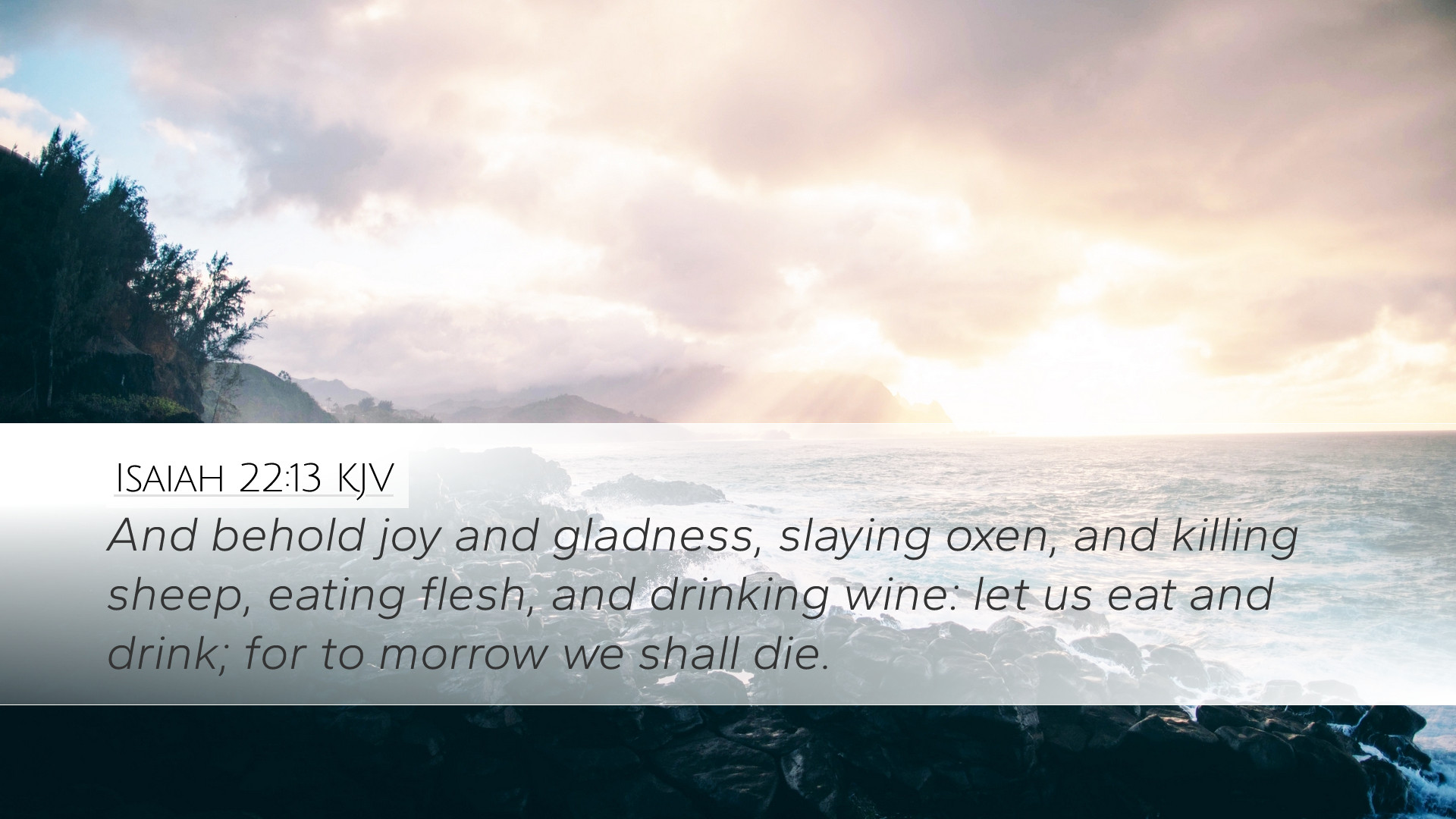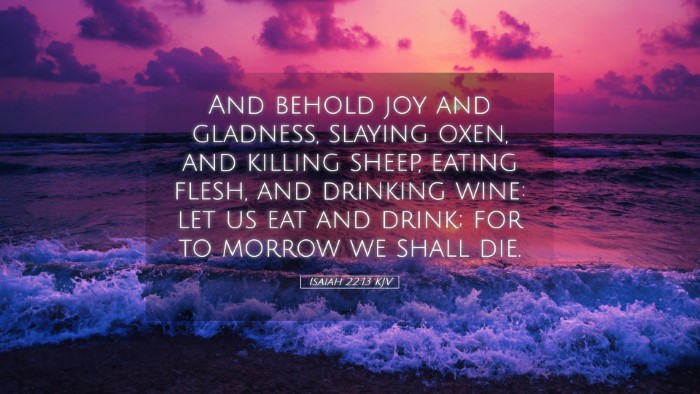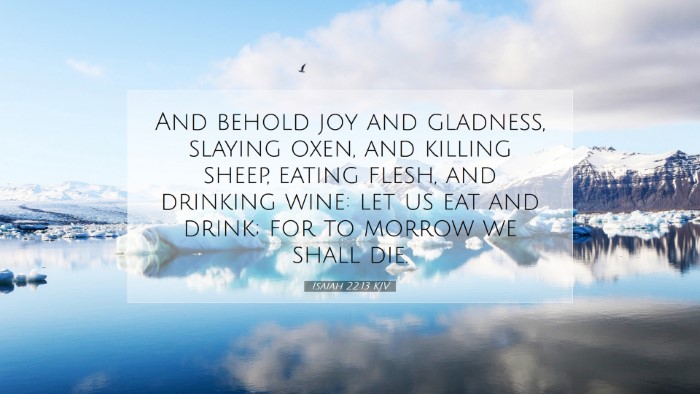Commentary on Isaiah 22:13
Verse Overview: Isaiah 22:13 states, “But behold, joy and gladness, killing oxen and slaughtering sheep, eating flesh and drinking wine, ‘Let us eat and drink, for tomorrow we die!’” This verse encapsulates a state of revelry and a disregard for the impending judgment of God upon Judah.
Contextual Background
Historical Setting: The prophecy of Isaiah was delivered during a tumultuous time in Israel’s history, marked by political intrigue and impending doom from foreign powers. The context of Chapter 22 reveals a warning against misplaced trust in temporal security.
Theological Insights
The Nature of Human Rebellion: Matthew Henry notes that this verse reveals the heart of carnal man, who, facing judgment, indulges in temporary pleasures rather than repenting and seeking God. The phrase “Let us eat and drink, for tomorrow we die!” epitomizes a hedonistic philosophy that dismisses any consideration of divine accountability.
Examination of the Behavior Displayed
- Indulgence in Sin: Albert Barnes highlights that the actions described—killing oxen and slaughtering sheep—were likely associated with feasting in the face of calamity. Rather than recognizing their sin, the people chose to indulge in revelry.
- Despairing Attitude: Adam Clarke emphasizes that such behavior stems from a despairing mindset, where individuals, overwhelmed by circumstances, believe that nothing can be done to avert impending disaster. This also reflects a lack of faith in God’s mercy and a distorted view of life’s transient nature.
Spiritual Implications
The Danger of Complacency: This spontaneous revelry reflects a deeper spiritual malaise where individuals sense their impending doom yet choose to remain complacent. As suggested by Henry, the people’s enjoyment in sins leads to a greater disregard for their spiritual state and future consequences.
Call to Reflection
Understanding True Joy: In contrast to the superficial joy expressed in this verse, biblical joy is characterized by a heart aligned with God, one that recognizes both His sovereignty and mercy. Pastors and theologians must guide their congregants away from the fleeting pleasures of this world towards the eternal joy found in a relationship with Christ.
Warnings against Temporal Living
Recognizing Judgment: The revelry amidst impending judgment illustrates a grave spiritual misunderstanding. Barnes reminds readers that living as though there are no consequences for sin ultimately leads to ruin. This echoes throughout the Scriptures as a repeated theme of the need for repentance and the consequences of a lifestyle devoid of accountability.
Conclusion
Isaiah 22:13 serves as a stark reminder of the human condition when faced with spiritual reality. The solemnity of judgment should lead to humility and repentance rather than indulgence. As scholars and practitioners of the faith, there lies a responsibility to shepherd individuals toward understanding the gravity of sin, the nature of true joy, and the urgency of redirecting lives toward God’s purposes.


